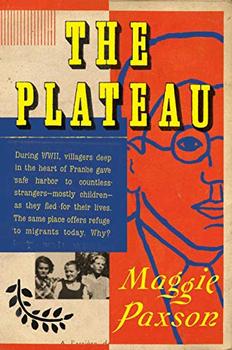Summary | Excerpt | Reviews | Beyond the Book | Readalikes | Genres & Themes | Author Bio

 Book Reviewed by:
Book Reviewed by:
Elisabeth Cook
Buy This Book
If peace can be this-defined within a regular, real kind of social world-how, then, would you know a peaceful community when you saw one?
A lack of violence would be a good start, of course-though this is a definition in the negative, like defining health in terms of the absence of illness, and not as the brilliant sum of systems that preserve the spark of life. Still, it's useful. Some recent research on social networks seems to show that violence is less likely when there are deep and common contacts between communities. It also seems that societies where girls are educated are less likely to be violent. In some warring parts of the world, it is possible to identify-and count and describe-specific communities that somehow manage to avoid the scourge of war and become, in effect, "peace enclaves." Little by little, with the help of data, we can begin to pinpoint places in the world where violence goes down and down-perhaps, someday, all the way to zero. And this is an excellent start.
Still, for me, the close-up is necessary. What is peace, face-to-face, even as war rages all around? You should be able to find it, in how a community solves even its small problems; how it handles inequality and sharing; how it defines and deals with diversities; how it makes a habit of protecting the vulnerable in troubled times; how some behaviors become, in effect, unthinkable within it.
If you want to study peace, face-to-face, you need to find peaceful faces. And you need to have a plan. And you need to start counting things, maybe, but the right things.
Above all, you need an example.
I have an aunt, Barbara, who sends me things-mostly little family keepsakes and her own artwork. Years ago, she sent me a book that arrived smelling of old wood and tin. That book, Lest Innocent Blood Be Shed, by Philip Hallie, seemed special-and my aunt said that our family was somehow connected to its story-but I didnÕt read it right away.
Then one day-after many travels and many adventures, and many hours contemplating the meaning of violence I had learned of up close—
I did.
It was a remarkable story, set on a tiny plateau in south-central France called Vivarais-Lignon. From 1939 to 1945, the people of Vivarais-Lignon took in hundreds if not thousands of strangers who had been doomed by the Nazi occupation of the Second World War. They were farmers, tradesmen, clergy, teachers, and politicians-and despite terrifying conditions all around, they fed the strangers, hid them, schooled them, and eventually ferried them off to safety in Switzerland. The rescuers were in constant mortal danger. And indeed, some villagers were punished by the German occupiers and the collaborating French police. Some were killed.
How many people-as a collective, no less-would do this? How many would gird themselves for the mortal haul? And how many, in the face of the daily pressure to go with the forces of the blood-dimmed tide, would resist? These people, tested by fire, landed far on the end of the bell curve drawn by "rational choice." So rare was their shared effort during the Holocaust that the community of Vivarais-Lignon is one of only two to be singled out by Israel's Yad Vashem for memorialization in its Garden of the Righteous Among the Nations.
Was their effort during the Holocaust a brilliant fluke-or something more, some deeper reflection of their social practice? Hard to say, but there is this: It turns out that for hundreds of years-from the time of the first religious wars in France, through revolutions, colonial wars, and the fascist and nationalist conflagrations of broader Europe-the community of Vivarais-Lignon has been, on and off, actively sheltering vulnerable peoples in violent times. So perhaps the people living in this high plateau do know things that we don't. Perhaps we can learn them.
And so, having found an example of a place on the end of the bell curve, a place where common decency seemed to have become uncommon decency, I began to hold this example up like a precious stone, its structure a crystalline mystery.
Excerpted from The Plateau by Maggie Paxson. Copyright © 2019 by Maggie Paxson. All rights reserved. No part of this excerpt may be reproduced or reprinted without permission in writing from the publisher.





The Flower Sisters
by Michelle Collins Anderson
From the new Fannie Flagg of the Ozarks, a richly-woven story of family, forgiveness, and reinvention.

The House on Biscayne Bay
by Chanel Cleeton
As death stalks a gothic mansion in Miami, the lives of two women intertwine as the past and present collide.

The Funeral Cryer by Wenyan Lu
Debut novelist Wenyan Lu brings us this witty yet profound story about one woman's midlife reawakening in contemporary rural China.
Your guide toexceptional books
BookBrowse seeks out and recommends the best in contemporary fiction and nonfiction—books that not only engage and entertain but also deepen our understanding of ourselves and the world around us.